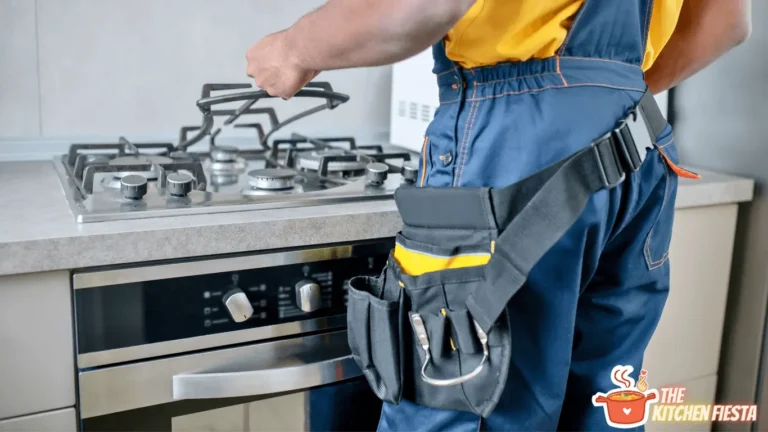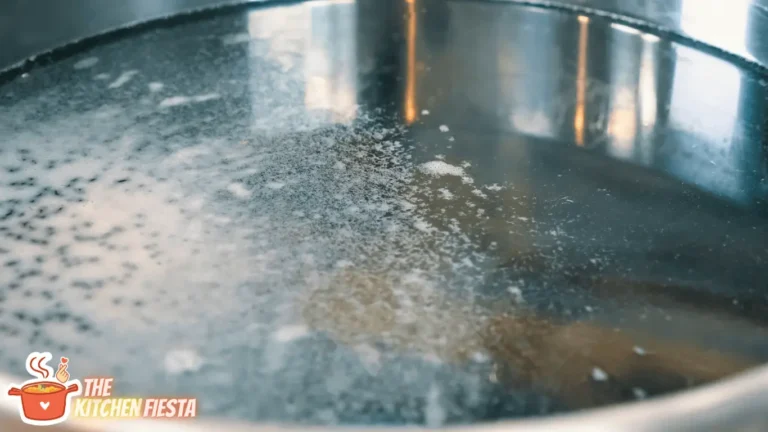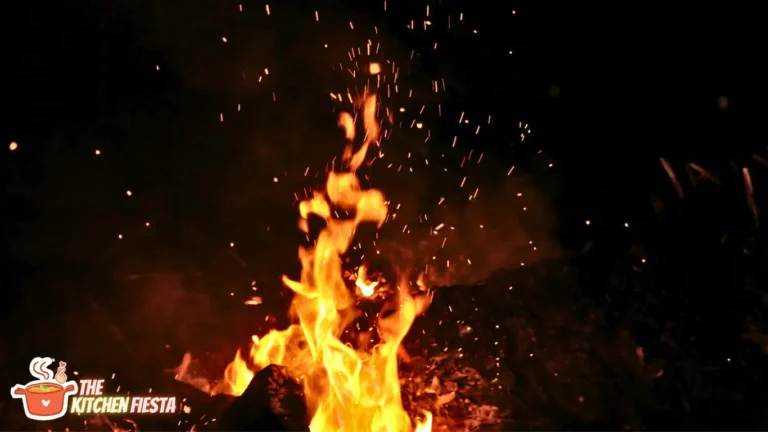House Smells Like Gas From Stove? Here’s What You Need to Know

Many homeowners have experienced the unpleasant smell of gas in their homes. One of the most common sources of this odor is the stove. A gas stove can emit a gas smell for various reasons, ranging from minor to more severe problems.
If your house smells like gas from the stove, it is essential to take immediate action. Ignoring the problem can lead to serious health risks and the potential for a gas explosion. In this article, we will explore the top causes of gas smells from stoves and the steps you can take to address them. By understanding the root cause of the problem and taking appropriate action, you can ensure that your home is safe and comfortable for you and your family.
What Are Gas Stove Smells?
Gas stoves are a common appliance in many households. They are efficient, easy to use, and last many years. However, it can be concerning if you notice a strange smell coming from your gas stove. Here are some things to remember when you notice a gas stove smell.
Firstly, it is essential to understand that a faint smell of gas when you first light your gas stove is typical. However, if the smell persists or strengthens, it could be a sign of a problem. In such cases, it is essential to investigate the situation to get to the root of the problem.
There are several reasons why your gas stove may produce a strange smell. One of the most common reasons is a gas leak. Gas leaks can occur due to a faulty gas valve, a damaged gas line, or a loose connection. If you suspect a gas leak, it is essential to turn off your gas stove immediately and call a professional to fix the issue.
Another reason your gas stove may smell is a dirty burner. Over time, food particles and grease can accumulate on the burner, causing it to emit a strange odor. If this is the case, it is important to clean the burner thoroughly with a mild detergent and a soft brush.
Additionally, propane odor from your natural gas stove can occur due to using an odorant called mercaptan. This chemical is added to gas during manufacturing to make it easier to detect gas leaks. While this odorant is harmless, it can cause a strong smell in your home.
Immediate Actions to Take
If you smell gas from your stove in your home, it is crucial to take immediate action. Here are some steps to follow:
1. Evacuate the area:
Everyone in the house should leave immediately. Do not turn on any lights or appliances or smoke, or use any open flames.
2. Call for help:
Call your gas company or emergency services once you are safely outside. Do not assume that someone else has already reported the gas odor.
3. Do not re-enter the house:
Do not go back into the house until the gas company or emergency services have given you the all-clear.
4. Do not try to fix the problem yourself:
Do not attempt to locate the source of the gas leak or fix any gas-related problems yourself. Please leave it to the professionals.
5. Do not turn off the gas supply:
Do not attempt to turn off the gas supply to your home. This should only be done by a trained professional.
Smelling gas in your home can be dangerous, and you should take it seriously. By following these immediate actions, you can help ensure the safety of yourself and your family.
Possible Causes of Gas Smells
When a house smells like gas, it can be concerning and potentially dangerous. Here are some possible causes of gas smells in the house:
1. Gas Leaks
A gas leak is the most common cause of a gas smell in the house. Leaks can occur in gas lines, appliances, or the gas meter. If you suspect a gas leak, acting quickly and following proper safety procedures is essential.
2. Malfunctioning Appliances
Gas appliances such as stoves, ovens, and water heaters can develop problems that cause them to emit gas smells. A malfunctioning burner or ignitor can cause gas to build up and escape into the air. It is important to have gas appliances serviced regularly to prevent these issues.
3. Improperly Installed Appliances
If gas appliances are not installed correctly, they can leak gas into the house. This can happen if the gas line is not connected correctly or the appliance needs to be installed according to the manufacturer’s instructions.
4. Chemical Contamination
Certain chemicals can cause a gas-like smell in the house. For example, if a home has been recently painted or treated with pesticides, it may smell like gas. In some cases, sewer gas can also cause a gas smell.
5. Natural Gas Additives
Natural gas is usually odorless, but a chemical called mercaptan is added to give it a distinct odor. If a house smells like gas but has no leak, the smell may be simply the natural gas odorant.
It is essential to take the house’s gas smells seriously and address them promptly. If you are unsure of the cause of the gas smell, it is best to call a professional to investigate.
Preventing Gas Leaks
Gas leaks can be dangerous and even life-threatening. However, they can be prevented with some simple steps. Here are some tips on how to prevent gas leaks in your home.
Regular Maintenance
Regular maintenance of your gas appliances is essential to prevent gas leaks. It is recommended to have a professional inspect your gas appliances at least once a year. During the inspection, the technician will check for any leaks, cracks, or other issues that may cause a gas leak. They will also clean and adjust the appliances to ensure they work correctly.
In addition to professional inspections, performing regular maintenance on your gas appliances is essential. This includes cleaning the burners, checking the gas lines for leaks, and ensuring proper ventilation. If you notice any issues with your appliances, such as a strange smell or unusual noise, it is essential to have them checked by a professional immediately.
Proper Usage
Proper usage of your gas appliances is also essential to prevent gas leaks. Always follow the manufacturer’s instructions for use and maintenance. Never use your gas appliances for anything other than their intended purpose. For example, do not use your stove to heat your home.
It is also important to ensure proper ventilation when using gas appliances. Ensure the room is well-ventilated and there is no blockage in the ventilation system. This will help prevent the buildup of gas fumes, which can be dangerous.
When to Call a Professional?
If your gas range oven smells like gas, it is essential to take immediate action to ensure your safety. While some cases may be quickly resolved with a simple fix, others may require professional assistance. Here are some situations in which it is best to call a professional:
- Intense and persistent gas odor: If you smell gas strongly and persistently, you must call a professional immediately. This could indicate a gas leak, which can be extremely dangerous if not addressed immediately. Do not attempt to fix the issue yourself, as this could put you and your household at risk.
- Hissing sound: If you hear a hissing sound from your gas range oven, this could indicate a puncture in the gas tank or a gas line. This can also be dangerous and should be handled by a professional.
- Increased gas usage: If you notice a sudden increase in gas usage, this could be a sign of a gas leak or other issue with your gas range oven. A professional can help diagnose and fix the issue.
- Other symptoms: If you notice any other symptoms, such as dirt or water being blown into the air near a natural gas line or your house plants dying or wilting, it is best to call a professional to investigate.
Suppose you are unsure how to fix the issue or feel uncomfortable attempting it yourself. In that case, it is best to call a professional. They have the knowledge and expertise to diagnose and fix problems safely and efficiently. Remember, your safety should always be your top priority.
Long-Term Health Effects of Gas Exposure
Exposure to gas leaks can cause both short-term and long-term health effects. While the immediate symptoms of gas exposure can be severe, the long-term effects can be just as concerning. Here are some of the long-term health effects of gas exposure:
- Respiratory problems: Long-term exposure to gas leaks can cause respiratory problems, such as chronic bronchitis, asthma, and emphysema. These conditions can make breathing difficult and significantly reduce a person’s quality of life.
- Neurological problems: Gas exposure can also cause neurological problems, such as headaches, dizziness, and confusion. In severe cases, it can even lead to seizures and coma.
- Cancer: Some studies have suggested that long-term exposure to gas leaks may increase the risk of certain types of cancer, such as leukemia, lymphoma, and brain cancer.
- Reproductive problems: Gas exposure can also cause reproductive problems, such as infertility, miscarriage, and congenital disabilities.
It is important to note that the long-term effects of gas exposure are only sometimes immediately apparent. In some cases, it may take years or even decades for the effects to become apparent. Therefore, it is essential to take gas leaks seriously and to take steps to prevent them from occurring in the first place.
Conclusion
In conclusion, if someone smells gas in their house, it is essential to take immediate action to ensure their safety. The first step is to identify the source of the gas smell. If it is coming from the stove, one should ensure that the stove is turned off and the gas supply is also turned off.
If the smell persists, it is essential to ventilate the area by opening windows and turning on fans. If the smell is consistent, one should evacuate the house and call a professional to detect whether gas is present or not.
It is also important to note that gas leaks can be prevented by regular maintenance of gas appliances. This includes checking for leaks, ensuring proper ventilation, and having appliances serviced regularly by a professional.
Overall, it is essential to take gas smells seriously and to take immediate action to ensure the safety of oneself and others in the household.
Frequently Asked Questions
What are the dangers of smelling gas in your house?
Gas leaks can be dangerous and even deadly. The gas may ignite and cause a fire or explosion, or it may cause carbon monoxide poisoning. Carbon monoxide is a colorless, odorless gas that can be deadly in high concentrations.
How can you tell if your stove is leaking gas?
If you smell gas in your house, you should immediately turn off the gas supply to your stove and open windows and doors to ventilate the area. You can then check your stove for gas leak signs, such as a hissing sound or a small flame at the burner.
What does a gas leak from a stove smell like?
A gas leak from a stove may smell like rotten eggs or sulfur. This odor is added to natural gas to help people detect gas leaks.
Why does my house smell like gas even though there’s no leak?
If you smell gas in your house, but there is no leak, it could be due to a malfunctioning stove or other appliance. It is important to have your appliances checked regularly by a professional to ensure they function correctly.
Is it normal to smell gas from your stove?
No, it is not customary to smell gas from your stove. If you smell gas, you should take immediate action to ensure your safety.
What should you do if you smell gas in your house?
If you smell gas in your house, you should immediately turn off the gas supply to your stove and open windows and doors to ventilate the area. You should also leave the house and call your gas company or a professional to come and check for a gas leak. Please do not use electrical devices or light switches, as they could ignite the gas.






